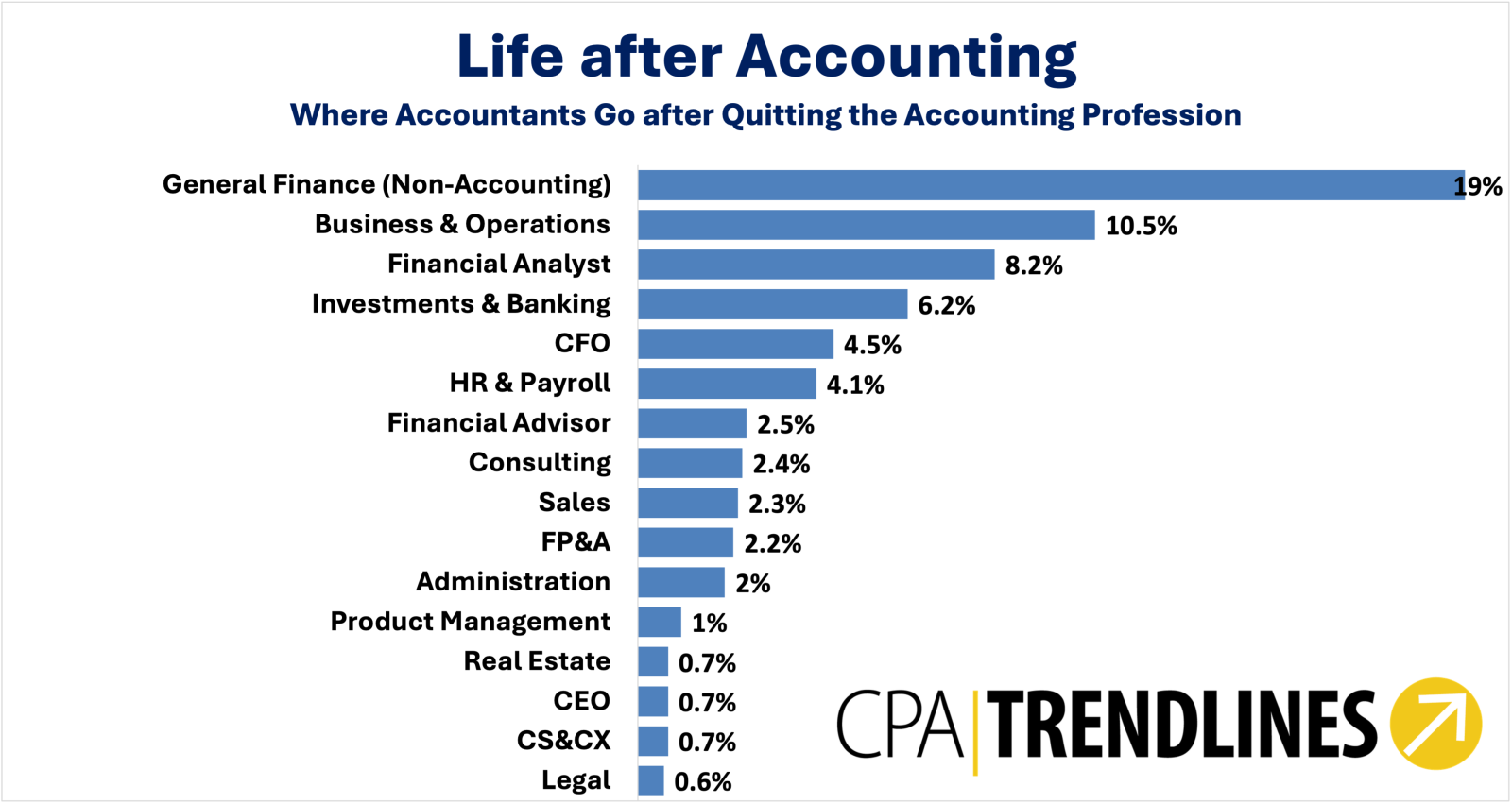no longer a problem confined to just new talent or middle managers.

by 卡塔尔世界杯常规比赛时间 research
in a startling shift, thousands of highly experienced top-level accountants are leaving the field mid-career, challenging the long-held view that the staffing crisis is limited to new graduates or middle managers.
related: middle managers getting squeezed | explaining the talent shortage in one big chart | salary and compensation outlook for small cpa firms | gen ai in accounting: epic transformation, or overheated hype? | more: the talent crisis | download the national pipeline advisory group report
for many accountants on the edge of transition, the coming years will determine whether the profession can reinvent itself to retain the trust of its workforce or continue to lose ground as one of america’s fundamental professions.
more than 82 percent of accountants who are leaving the profession have at least six years of experience, up from 77 percent in 2022 and 71 percent in 2021, according to live data technologies.

the field has seen a mass exodus in recent years, with over 300,000 accountants leaving between 2019 and 2021. the departures are creating a pronounced shortage of qualified accountants, with vacancy periods lengthening as the pipeline for new entrants weakens.
key drivers behind the trend include stagnant salaries, high stress, and repetitive accounting tasks, which many professionals find uninspiring.
some are also wary of the impending influence of generative ai, which could automate a substantial portion of accounting’s core functions.

for former accountant omer khokhar, the field’s financial promise initially drew him in. however, the “monotonous” work and limited growth opportunities ultimately led him to transition into commercial real estate banking with jpmorgan chase, he told the wall street journal. like khokhar, many in the field are opting for finance, business operations, and technology roles, where growth and innovation are more pronounced.
dwindling interest in accounting degrees exacerbates the shortage, which is further strained by stringent certification requirements. as retirements rise and fewer new accountants enter the workforce, the strain on remaining professionals is mounting.
the profession is ramping up efforts to attract younger talent, but retention has been a losing battle. high burnout rates reflect accountants’ growing discontent, with many seeking work-life balance and meaningful contributions—qualities some feel the profession increasingly lacks.
ey, for instance, is investing $2 billion in added compensation and benefits.
meanwhile, accounting firms are also implementing measures like allowing managers to remain in place without mandatory promotion requirements to prevent further attrition. additionally, ai is prompting mixed reactions, with some viewing it as a relief for mundane tasks, while others worry it signals a threat to job security.
the accounting profession is desperately seeking solutions to address the staffing shortage through various strategies, including:
- removing barriers: the removal of the 150-hour rule, which is seen as a barrier to students entering the profession.
- non-traditional hiring: firms are hiring individuals who may not have a traditional accounting background.
- process improvement: there is a push for existing staff to improve their processes to reduce time spent on repetitive tasks, thereby increasing efficiency.
- remote specialists: utilizing remote specialists to help firms manage workloads without hiring additional full-time staff.
- client selection: some firms are becoming more selective about the clients they take on, focusing on higher-value work and disengaging from less profitable clients.
- compensation adjustments: increasing fees and better compensation may be the long-term solution to attract and retain talent.
- private equity and mergers: firms are exploring merger and acquisition opportunities to cope with staffing challenges, including a new rush to private equity.
the statistics are sobering.
- the profession must fill about 130,000 new and replacement positions annually.
- the national pipeline advisory group says the number of first-time cpa exam candidates has fallen from 48,004 in 2016 to just over 32,000 in 2023.
- according to the aicpa, three in four public cpas are expected to retire over the next 15 years. the aicpa has missed its membership growth targets for three out of the last four years.
- the number of accounting and auditing jobs is projected to grow steadily through 2032, but only by 4 percent.

college majors compared by starting salary
| 2024 starting salary | 2023 starting salary | % change | |
| engineering | $76,736 | $74,405 | 3.10% |
| computer sciences | $74,778 | $72,843 | 2.70% |
| math and sciences | $71,076 | $67,199 | 5.80% |
| social sciences | $69,802 | $60,107 | 16.10% |
| humanities | $68,227 | $52,938 | 28.90% |
| business | $63,907 | $62,069 | 3.00% |
| accounting | $63,000 | $61,000 | 3.30% |
2 responses to “twelve years and out: seasoned accountants join the exodus”
randy johnston
national pipeline numbers have an editing error
rick telberg
thank you, randy.
the sentence has been corrected to read “the national pipeline advisory group says the number of first-time cpa exam candidates has fallen from 48,004 in 2016 to just over 32,000 in 2023.” in the original, the year 2023 was published as “202.” and we’ve now included a link to download the report for readers interested in learning more.